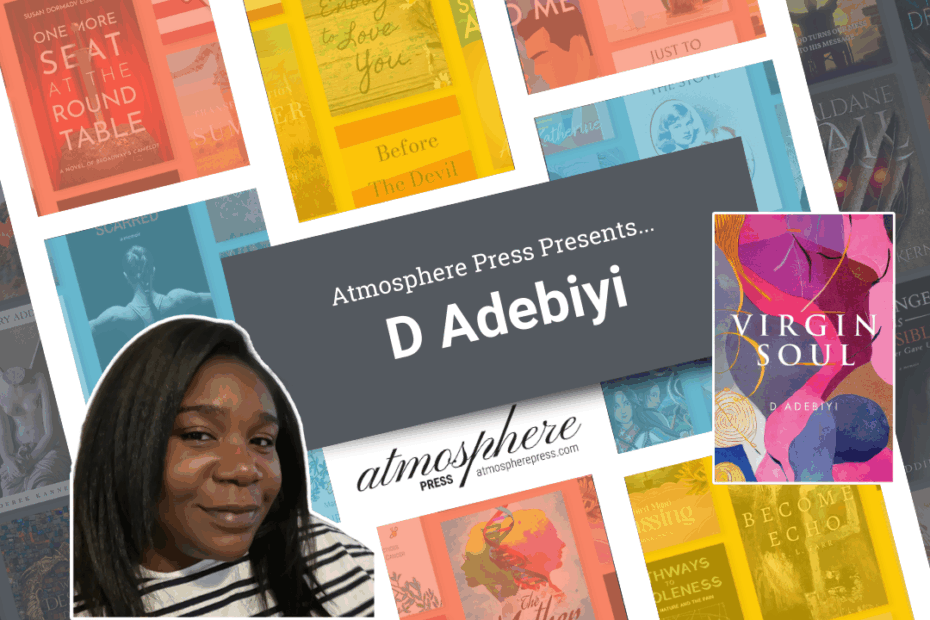An Interview with D Adebiyi

D Adebiyi is a Nigerian-British poet and storyteller whose work blends lyrical precision with emotional depth, exploring themes of faith, identity, memory, and transformation. Her voice is both intimate and expansive—rooted in personal truth yet resonant with universal meaning. Guided by a deep reverence for language, Adebiyi crafts poetry that is sensory, textured, and musical in rhythm. Her writing often lives in the tension between opposites—beauty and pain, longing and resilience, the sacred and the everyday.
Who/what made you want to write? Was there a particular person, or particular writers/works/art forms that influenced you?
Writing has always been my way of understanding the world—an instinctive act of translation between inner experience and external expression. I started writing poems in the margins of my school books, not knowing then that they were poems. I was influenced by writers who gave language to what I didn’t yet know how to express—Maya Angelou and Carol Ann Duffy—but music, particularly rhythm and blues and neo-soul genres, is what influenced me the most: the rhythm of words, the rise and fall of feeling in lyrics. And then, of course, scripture—its poetry, wisdom, and cadence profoundly shaped the way I approach language.
What other professions have you worked in? What’s something about you that your readers wouldn’t know?
I’ve worked predominantly in healthcare. Something readers might not expect is that my scientific background and my poetic self aren’t in conflict; they’re parallel expressions of a deep curiosity about the human condition. Precision, empathy, and rhythm play vital roles in both worlds.
Tell us the story of your book’s title. Was it easy to find, or did it take forever?
Virgin Soul came to me like a whisper—it was one of those titles that felt right before I even fully understood why. It speaks to the untouched essence of who we are before the world marks us, and also to the reclamation of that purity after we’ve been broken and rebuilt. It’s not about innocence in the traditional sense, but about the resilience of the spirit—the part of us that stays sacred, even after we’ve walked through fire.
The poems are a culmination of a decade’s worth of nocturnal thoughts and scribbled margins. Even after all this time, the title still feels like the only one that could hold the collection’s emotional weight.
What part of publishing your book made it feel real for the first time?
The first edition was published in 2016, but I found myself constantly tinkering—haunted by a feeling of incompleteness. So, I made the decision to rewrite, re-edit, and re-tell the collection—stripping away restrictions and presenting a more vulnerable, honest anthology. Holding this second edition in my hands, knowing that I’ve bared all artistically, felt like holding a part of my own becoming. That moment made it real. That, and the first time someone quoted a line from one of the poems—that made it real in an entirely different way.
If your book had a soundtrack, what are some songs that would be on it?
“The Love You Had” – Tracy Chapman
“When Can I See You Again” – Babyface
“W/As My Girl” – Maxwell
“Right Here Waiting” – Richard Marx
“I Used to Love Him” – Lauryn Hill featuring Mary J Blige
“Wild Horses” – The Rolling Stones
“King of Sorrow” – Sade
“I Am Light” – India Arie
“Oceans (Where Feet May Fail)” – Hillsong United
What’s one thing you hope sticks with readers after they finish your book?
I hope readers walk away with a deeper tenderness toward their own becoming—that they feel seen in the complexity of their emotions, and are encouraged to honour both the fragility and the strength within themselves. Virgin Soul is ultimately about transformation: how even in our brokenness, there is beauty, and in our healing, there is poetry. If the book invites someone to feel more fully or to name something they’ve struggled to articulate, then I’ve done what I set out to do.
What was the most rewarding/meaningful part of publishing your book?
The most meaningful part was expressing myself on the page—without armor, without perfection. Virgin Soul was born from exploration and introspection, most of which I had never shared aloud. To shape those fragments into something whole and then release them into the world felt both terrifying and sacred. Hearing from readers—especially women—who saw their own journeys reflected in the poems has been the most humbling and affirming reward. That quiet recognition, that sense of “I felt this too,” is everything I hoped the collection would offer.
What creative projects are you currently working on?
I’m currently expanding some of the poems from Virgin Soul into book-length projects, allowing those themes to deepen and evolve. I’d love to share more about that process, and how poetry continues to root me—turning introspection into something that resonates far beyond the personal.
Are you a writer, too? Submit your manuscript to Atmosphere Press.

Atmosphere Press is a selective hybrid publisher founded in 2015 on the principles of Honesty, Transparency, Professionalism, Kindness, and Making Your Book Awesome. Our books have won dozens of awards and sold tens of thousands of copies. If you’re interested in learning more, or seeking publication for your own work, please explore the links below.
